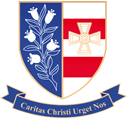Modern Foreign Languages
“If you talk to a man in a language he understands, that goes to his head. If you talk to him in his language, that goes to his heart.” – Nelson Mandela
Here at St Joseph’s we believe that learning a foreign language is an empowering experience. It provides an opening to other cultures. We want our students to be able to express their ideas and thoughts in another language and to understand and respond to its speakers, both in speech and in writing. Nowadays, we live in a multilingual world where being able to communicate is more important than ever before so a second language can not only enrich your life but can also enhance your career prospects.
French
Curriculum Intent French 2023-24
KS3 French
All KS3 students will learn French as part of their curriculum.
KS3 French Topics Outline
| Y7 | Y8 | Y9 | |
| Cycle 1 | All About Me | On Holiday | Healthy Living |
| Cycle 2 | My World | In Town | The Wider World |
| Cycle 3 | At School | Free Time | The Environment / Les Choristes |
KS3 lessons focus on using Sentence Builders. All can be found below:
Useful websites
https://www.bbc.co.uk/bitesize
KS4 French
We use AQA exam board for French GCSE.
KS4 French Topics Outline
| Y10 | Y11 | |
| Cycle 1 | Me, my family & friends
Technology Free time activities |
My studies
Life at school Jobs and future ambitions |
| Cycle 2 | Home, town and neighbourhood
Customs and festivals |
Social issues
Global issues |
| Cycle 3 | Travel and Tourism |
GCSE French key vocabulary booklet
KS4 Useful websites to practise:
https://www.frenchinaclick.com/learnfrench/
https://theidealteacher.com/6-french-listening-websites-to-improve-gcse-skills
https://www.bbc.co.uk/bitesize/examspecs/zr8bmfr
KS5 French
Why study A Level French?
In a changing world, the ability to communicate in more than one language is an essential skill, much-needed by the wider world. As we move forward, the necessity to communicate in a multilingual society, both at work, home and abroad will continue to rise. In today’s job market employers seek employees who can offer a foreign language.
What is the A Level course like?
A-level languages build upon your existing knowledge gained at GCSE, giving you a sound understanding of using your language in a variety of contexts and situations.
We use AQA exam for A Level French
KS5 French Topics Outline
| Y12 | 13 | |
| Cycle 1 |
|
|
| Cycle 2 |
|
|
| Cycle 3 |
|
Spanish
KS3 Spanish
2023-24 We are offering Spanish as a second language to some y8 / 9 classes
KS3 Spanish Topics Outline
| Y8 | Y9 | |
| Cycle 1 | All about me | All about me |
| Cycle 2 | The World | At School |
| Cycle 3 | At School | In The Past |
KS3 lessons focus on using Sentence Builders. All can be found below:
Useful websites
https://www.bbc.co.uk/bitesize
KS5 Spanish
Why choose A-Level Spanish?
If you have a talent for learning languages, and have enjoyed GCSE Spanish then you might want to consider studying Spanish at A Level.
The ability to understand and communicate in another language is a life-long skill for education, employment and leisure purposes. You will discover new cultures and gain a broader view of today’s increasingly globalized world. In today’s job market employers seek employees who can offer a foreign language.
Universities respect MFL qualifications as a sign of academic ability to study a wide variety of courses.
The ability to speak another language can open up many doors in your career and future academic life.
What is the A Level course like?
A-level languages build upon your existing knowledge gained at GCSE, giving you a sound understanding of using your language in a variety of contexts and situations.
We use AQA exam for A Level Spanish
KS5 Spanish Topics Outline
| Y12 | 13 | |
| Cycle 1 | Modern and traditional values
Modern day idols |
Immigration
Racism Today’s youth, tomorrow’s citizens Monarchies and dictatorships |
| Cycle 2 | Cyberspace
Spanish regional identity |
Integration
Popular movements Cinema study : Volver Literature study : Como Agua Para Chocolate |
| Cycle 3 | Equal rights
Cultural heritage Cinema study : Volver Literature study : Como Agua Para Chocolate |

